
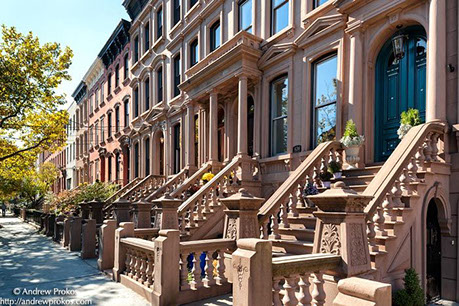
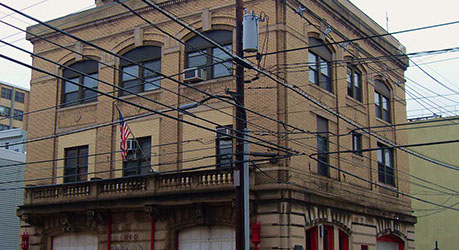
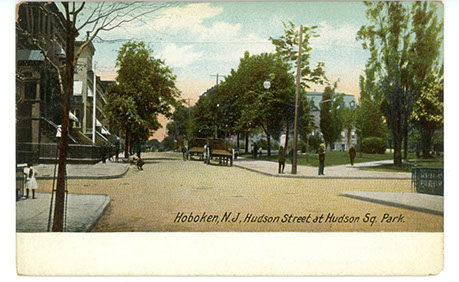
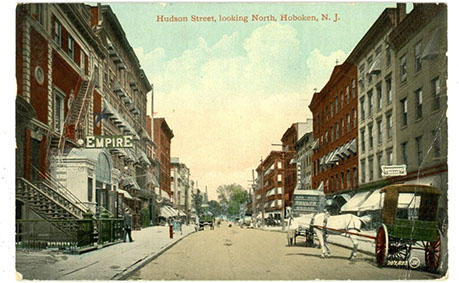
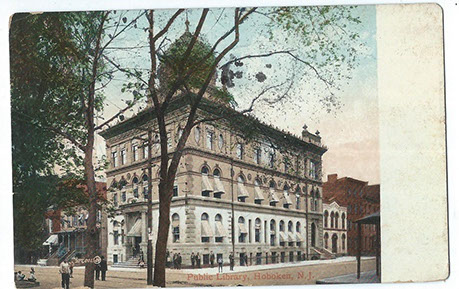
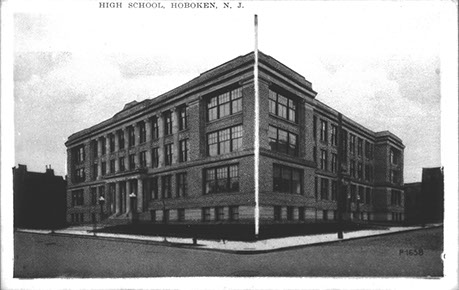

Hoboken City Hall about 1950.
Most Hobokenites were working class but this street included the residents of the upper class
The fire house dating to the early 20th century
Hudson Square Park one of several city squares near the turn of the 20th century
Hudson Street 1910. The Empire was a theater. The awnings and the white sign across the street are Tannenbaum's Emporium
The public library which opened in 1897 built by city of Hoboken on land donated by the Stevens family
Hoboken High School in 1916 when my grandmother Gertie Waller graduated.
Copyright@2016 Janet Marcus


